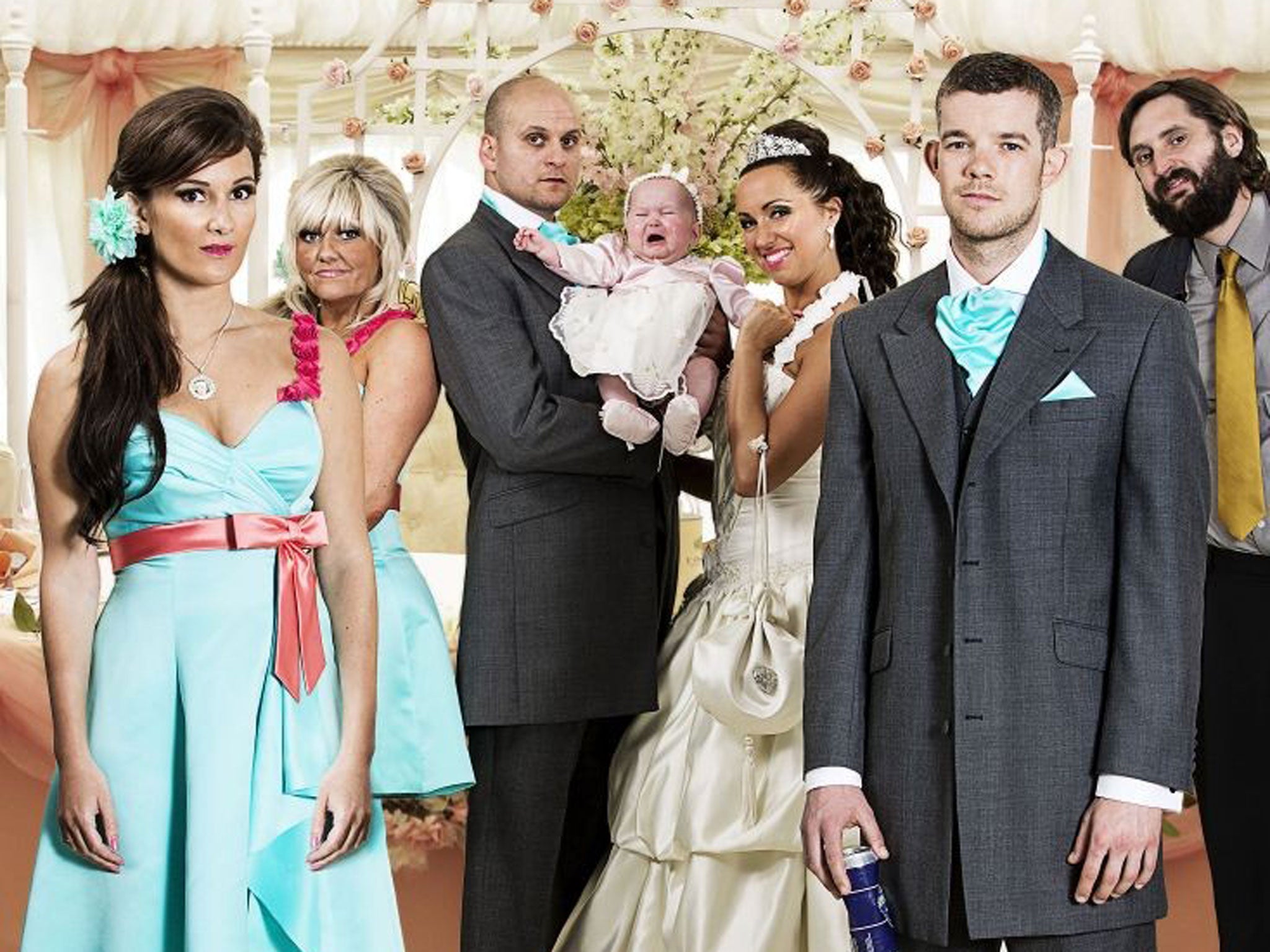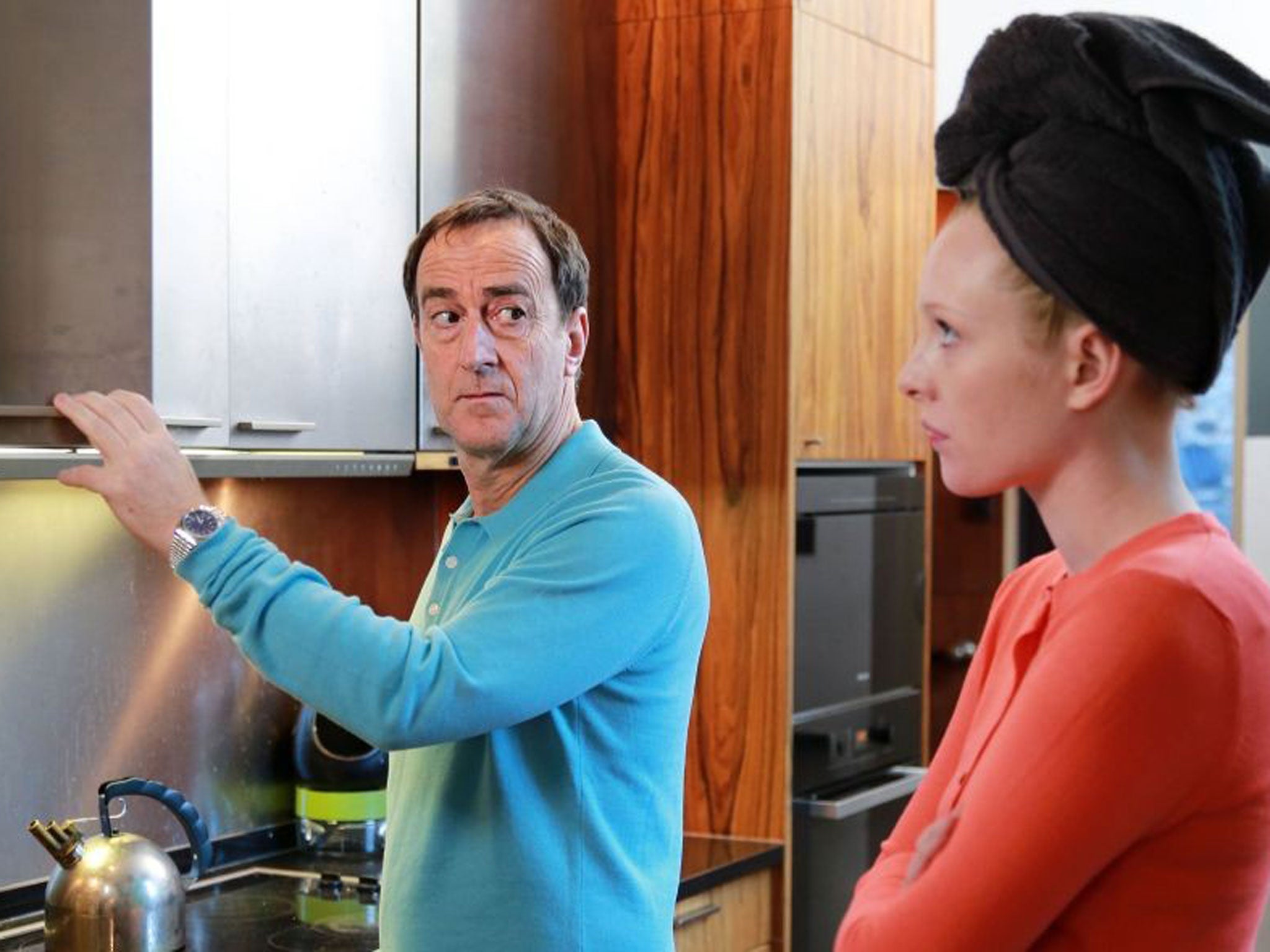The BBC in crisis: We all need a place to make mistakes
Axeing the youth-oriented BBC3 from terrestrial television will please some, but we have to pay for quality television and nurture its talent

Your support helps us to tell the story
From reproductive rights to climate change to Big Tech, The Independent is on the ground when the story is developing. Whether it's investigating the financials of Elon Musk's pro-Trump PAC or producing our latest documentary, 'The A Word', which shines a light on the American women fighting for reproductive rights, we know how important it is to parse out the facts from the messaging.
At such a critical moment in US history, we need reporters on the ground. Your donation allows us to keep sending journalists to speak to both sides of the story.
The Independent is trusted by Americans across the entire political spectrum. And unlike many other quality news outlets, we choose not to lock Americans out of our reporting and analysis with paywalls. We believe quality journalism should be available to everyone, paid for by those who can afford it.
Your support makes all the difference.My Man Boobs and Me, Hotter Than My Daughter, My Big Breasts and Me, Sun, Sex and Suspicious Parents, F**k Off I'm Ginger, F**k Off I'm Fat, Danny Dyer: I Believe in UFOs: the titles of some of BBC Three's greatest hits don't exactly suggest a bastion of public service broadcasting. They sound more like episodes of The Jeremy Kyle Show. Unsurprising, then, that the BBC's usual detractors have found the channel an easy target throughout its 11-year life. Now it looks as if that life is about to end, the result, according to Director General Tony Hall, of the budget squeeze that cut BBC funding by 16 per cent in 2010, and the belief that a youthful audience will adapt most quickly to online viewing. If Auntie were making a programme aimed at 18- to 34-year-olds about its demise, it might be entitled "Techier Than Your Parents". Or "F**k Off, We're Broke".
As with so many BBC Three programmes, though, such a title would be a trojan horse: a saucy, immediate way to draw attention to what turns out to be a more complicated story. For one thing, this isn't just an online transfer: two-thirds of the £90m budget is being cut. And that means that something real will be lost. BBC Three was not always high art, but neither is BBC One; The One Show is no more sophisticated than Snog, Marry, Avoid? just because it has a boring title. The channel's remit was not to be edgy but to be youthful, two distinct characteristics that are often mistakenly elided.
In truth, all that titular carping just showed that BBC Three was doing its job properly: carving out a space of its own, using the sneers of the establishment as evidence that it was serving a demographic that has no other home on BBC TV. And it really has produced a great deal of good television, from the matchless sitcom about young coupledom Him & Her to Our War, probably as intimate and arresting a documentary about Afghanistan as I've ever seen. In the circumstances, it is perhaps unfortunate that half of the saving is to be spent on BBC One drama. This is a familiar transfer of resources – from the youngest and worst represented to the rest of us.
We began with a repeat of Snog Marry Avoid?, a stalwart of the schedule that remains one of the channel's most popular offerings, and epitomises the difference between youthfulness and cool. SMA, which defines itself as a "makeunder" show, is breezy, yes, and light, and it features exclusively young faces. It is also horrible: snobbish and schoolmarmish and judgemental in a way that the young do as well as anyone, pronouncing harsh verdicts on anyone who dares to diverge from its narrow vision of what it endlessly describes as "natural beauty" – that is, pale skin and demure clothes that appear to come exclusively from Debenhams.
One fake-tanned girl who wants to be a social worker is called "disgusting", and told to choose between "helping the needy or dress real seedy". More troublingly still, Olivia/Dean, an awkward youth who appears to be in the grip of a fierce internal struggle over gender identity, is roundly ridiculed, forced out of a dress and makeup and made to dress like a man (or, to be more precise, like a man who dresses very badly). The transformation gets the full heartstrings treatment, but the producers can't make it stick.

"I'm more comfortable in my skin being Olivia," their subject explains apologetically. "I'm maybe stuck in my ways."
I wasn't much inclined to cheer for the channel after that. Don't Tell the Bride was a much less regressive affair, and deeply enjoyable, but only in the way that beans on toast is – familiar and cosy and very, very easy. It follows the same arc from insurmountable chaos to unlikely triumph as every other reality show ever made, and it relies on arguments and idiots and tears of relief. It is also another repeat: on this Tuesday night, we got 90 minutes of original programming. If this doesn't seem like much for £90m a year, consider how thin the offering for a third of that will be.
And so to Hair, an imaginatively titled Apprentice-alike that replaces business with barbering, and Alan Sugar with Steve Jones. "The search for Britain's best amateur hairstylist continues," cries Steve, apparently expecting us to fall off our seats with excitement. It's competent enough, but the polar opposite of original. Are we edified? No we aren't.
The last thing – last, at least, before we get into imports (Family Guy is BBC Three's most popular show) and EastEnders repeats at 10.30pm – is Pramface, which is a pretty racy title for a traditional sitcom about a young woman navigating the choppy waters of single motherhood. I've tried hard to muster an opinion about Pramface, but the truth is it's just fine: a bog-standard offering which occasionally made me articulate the syllable "ha" without actually laughing. In this sense, it would fit neatly into BBC1's comedy line-up.
None of this is terribly inspiring, and you may see it as evidence that the decision to axe BBC Three comes without much of a cost. But that's wrong. Really, what it shows us is that making television is hard: Pramface is not The Office, it's true, but it isn't impossible that some of the people involved with it will make something great next time. Most people who achieve something significant do not do so without making mistakes along the way, and any breeding ground for talent is bound to feature a few underdeveloped specimens as well. If brilliance were always easy to spot, no one would be paid to find it.
You may consider this an inadequate defence of Hair or Don't Tell the Bride, which are better than Pramface but also much less ambitious, and unlikely ever to spawn anyone who is brilliant at anything other than producing more reality television – not a genre that it is entirely clear we need more of, and certainly not one that is underserved by the commercial market. But that's wrong, too. I don't like Hair, but lots of people do – the channel gets 13m viewers a week, which is pretty good for digital – and they pay the licence fee, too: if the BBC is to retain the legitimacy and public support that it needs to finance obscurely brilliant programming that wouldn't get made anywhere else, it must also serve a mass audience. The argument the other way always starts with carping about specific bad programmes. But it always ends up with the BBC reduced to a subscription service for people who like Radio 4 – and, unsurprisingly enough, it is always made by people who fall into exactly this demographic.
All of this makes me very sorry that BBC Three will no longer be on terrestrial TV. But I also think Tony Hall is doing the right thing.
The response to his decision last week was simplistic in the extreme, divided into glee at the supposed death of vacuity and outrage at another shortsighted cut by the overpaid manager class. Both of these attitudes are reactions to the wrong question. Hall wasn't asked, "Is BBC Three a good thing?" He was asked, "How are you going to save some money?" The BBC is in the midst of making cuts that will eventually total £700m and, as Hall has pointed out, a slight reduction in quality across the board is probably the worst outcome of all.
From that starting point, the decision is a pretty simple one. A huge sum is already being hacked out of the corporation's bureaucracy, and rightly so, but while it may be crowd-pleasing to demand that every penny of the cuts be so made, it is also impossible.
So have a look for yourself at the BBC's annual report, which lists the corporation's services and their budgets, and try to find another way to save the same amount. I did, hoping dearly to write a piece arguing that BBC Three should stay, but I can't do it: you might dump BBC Four instead, yes, but it has a fraction of the budget, and anyway that move would prompt many of the same objections.
This may make you angry. It certainly makes me angry. But it is not sensible to focus that anger on a decision that is far more symptom than illness. In 2010, the BBC suffered a licence fee freeze and took on financial responsibility for the World Service and BBC Monitoring, services that – while they feature the BBC brand – really ought to come out of general taxation, serving as they do foreign policy ends rather than British cultural ones. That was the moment to make a fuss. But instead, a real-terms budget reduction of 16 per cent went through without much objection. We should not be surprised if this ends up meaning that the BBC ends up doing about 16 per cent less stuff.
The licence fee is currently £145.50. This is far better value than my Sky Sports subscription, and I would be happy to pay my share of the budget shortfall if that was enough to restore BBC Three and the other losses that are bound to stack up in the coming months.
But it is not unreasonable to disagree, and many people do. The only thing you have to do is choose: do you want the BBC to do more, or do you want to pay less?
At the moment, too many people are trying to have it both ways. And, while "People Having it Both Ways" might be a promising pitch for the channel we are about to lose, it is not much of a basis for figuring out our cultural future.
Join our commenting forum
Join thought-provoking conversations, follow other Independent readers and see their replies
Comments